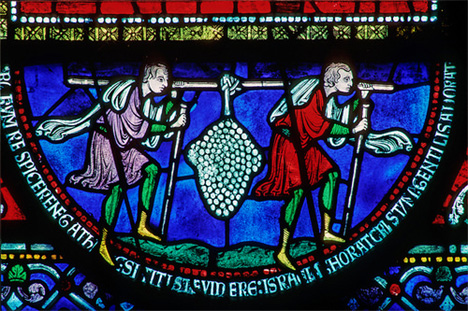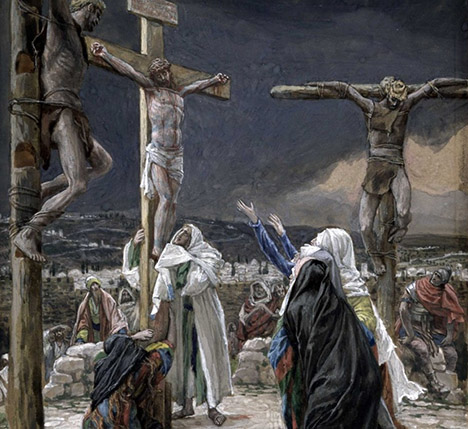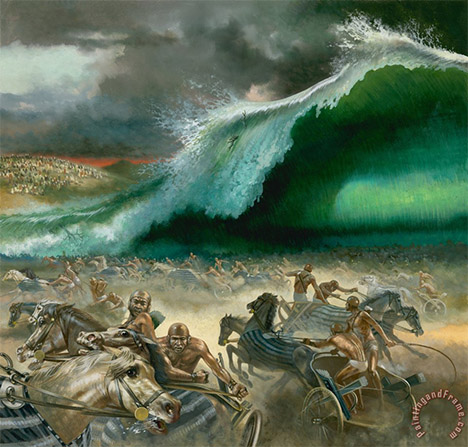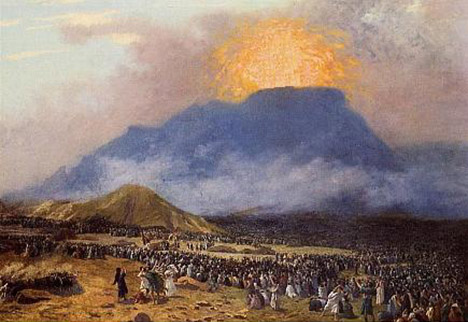Nephilim, Anakim, and Why Andrew Wilson is Wrong

Why do serious theologians persist with a story that reads like third-rate fan fiction?

Why do serious theologians persist with a story that reads like third-rate fan fiction?

“Although the Bible has no corporeal legendary swords, it does have a kind of legendary swordsman.”

Satan is currently bound from gathering the nations in kingly rebellion so that Jesus might gather them in priestly unity.

The abandonment of the Son by the Father is made palpable not in the crucifixion of His body, since He willingly laid down His life, but in the darkness which covered the Land for three hours. But perhaps this darkness was a sign of the Father’s nearness rather than His distance.

In a post on Kuyperian Commentary entitled Baptism Is God’s Work, my friend Steve Jeffery writes:
Continue reading

Ignorance of the Bible’s very consistent architecture has led to the assembly of many well-meaning but errant doctrinal constructs over the centuries. With reference to it, however, the conflicts are made plain. Our own towers to heaven, however historic they might be, and however cherished, must be torn down.

“In the days when our courts are declaring that good is evil and evil is good, the recovery of baptism as a delegation of divine legal authority rather than a sign of ‘limited Covenantal obligation’ is crucial.”
Every biblical Covenant is a word from heaven designed to bring a response from the earth. When the laws in the Ark of the testimony were given to Israel, the response of a legal oath was required, intended to culminate in the legal witness of Israel to the nations. Thus, every biblical Covenant is also a process which leads to maturity, beginning with cultivation and ending in representation.
A child must be schooled before he can be employed. A man must be a disciple before he can be an apostle. Adam was to be qualified before he could represent God as a just and merciful judge on earth. But the difference between cultivation and representation is the difference between circumcision and baptism, and this facet of the biblical Covenants is something paedobaptists are unable to accept, at least in its full glory.

Is our justification a past event or a future one? The debate continues while the answer is, like Adam and Eve, hidden in plain sight.
The problem with most theological discussions concerning our justification is that they are imagined in the courts of men rather than in the court of God. What is the difference between these two courts?
At that time the Lord said to Joshua,
“Make flint knives and circumcise
the sons of Israel a second time.”
(Joshua 5:2)
Was Israel disobedient in its failure to circumcise every male born in the wilderness? The Lord never chastised them for this. If this lapse in the practice of circumcision was in the plan of God, what was the purpose of that plan? The example which first comes to mind is the circumcision of the firstborn son of Moses in Exodus 4:24-26.
This post has been slain and resurrected for inclusion in my 2015 book of essays, Inquietude.
And I looked, and behold, a black horse! And its rider had a pair of scales in his hand. (Revelation 6:5)
The book of Revelation is a mystery, yet like all good mysteries it is a book made entirely of clues. It is a glimpse through the torn veil of the Temple, that is, the flesh of Jesus, into the heavenlies. The cloud into which He was taken up is opened to John’s eyes that he might see the horses and chariots of God (2 Kings 6:17). But John is a prophet who knows the Bible, and like John we will only understand the symbols if we know the Bible. The conversation at God’s table is for those who know their Master’s mind, who hear His voice as children and thus quit themselves like men. To them, this is indeed a Revelation. To those outside His commission, it remains an enigma, terrible lightning and thunder and the sound of trumpets (Exodus 19:19; 20:18).
This post has been slain and resurrected for inclusion in my 2015 book of essays, Inquietude.